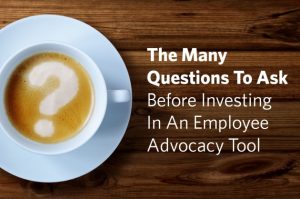By Leslie Feinzaig
There was a moment last spring when startup founders across the globe experienced a sudden collective whiplash. It was the Great Venture Capital Reset of 2022, when fundraising activity screeched to a halt after running fast and hot for the longest bull market in VC history. Untold numbers of in-progress funding rounds sputtered in the process, and every startup that had planned to raise in the second half of 2022 found a very different market waiting for them.
Just about every VC in my network reports a slowdown in the months since. As Masha Bucher, founder and general partner at Day One Ventures, puts it: “Priced rounds are so rare now that they sometimes get oversubscribed.” With two full quarters worth of data, we can now put numbers to the anecdotes. Peter Walker, head of insights at Carta, reports only 714 combined seed and Series A rounds in the fourth quarter of 2022—the first quarter in which Carta tracked fewer than 1,000 rounds since 2020.
Data from last quarter also confirms that rounds are taking much longer to come together. “The average time between a seed round and a Series A stood on average at 621 as recently as Q1 2021,” says Walker. “In Q4 of 2022 it was 798 days. That’s the highest we’ve tracked in more than five years.” Valuation caps were also lower: Median seed round pre-money valuation dropped to $14M in Q4 compared to $15M in Q1 2022, and median Series A was $39M in Q4 versus $50M in Q1. In other words, rounds are happening, but they are low and slow.
The slowdown is definitely not driven by founders. A recent report published by DocSend suggests that founders are sending out 30% more pitch decks since the start of 2022. Unfortunately, VCs are engaging with them 23% less often. This is likely because investors are spending more time and dollars supporting existing portfolios rather than adding new companies to the roster.
Despite the numbers, there’s a glimmer of optimism on the horizon for founders. Several investors report an uptick in deal flow and momentum in January compared to 2022. But the bar to secure those investments is higher than ever. Jenny Fielding, managing partner of The Fund, shares that “investors now seem more comfortable with the ‘new normal’ and are back in action investing—albeit with different expectations.”
As a venture-capital investor, my goal is to help founders to know what those new expectations are. In the weeks immediately following the market change, I spoke to a dozen other investors and shared our collective advice for founders. With investors settling into this “new normal,” it seemed like a good time to check back in. The following is our updated advice for founders who are considering raising an early round of venture capital this season.
Be pragmatic
Investor behavior at the market peak enabled and encouraged founders to raise as much as they could, at the highest valuation they could get. But in the new normal, investors are paying very close attention to these numbers, and the reasoning behind the numbers. “We’re extra mindful of how much a company is raising, what kind of runway that gives them, and ultimately how much time it will take them to reach the next meaningful inflection point so they can raise capital again,” says Cat Hernandez Middleton, general partner at The Venture Collective.
When it comes to valuation caps, the new normal necessitates that founders be realistic, forward looking, and even pragmatic. “Instead of thinking, ‘How much do I believe I’m worth?’ shift to “What valuation can I grow into comfortably in a short period of time?” says Hernandez Middleton. That means raising at a valuation cap that you can realistically double or even triple within 18 months, based on your business results.
In order to tie it all together, I encourage founders to create a financial model that connects expenditures to business outcomes and use it to determine how much money you really need to get to the next stage. For some founders, this exercise may result in a conclusion in which the numbers just don’t add up. Samara Mejia Hernandez, founding partner of Chingona Ventures, suggests that founders “have an honest conversation about where the company is, and whether you will be able to continue with your level of traction and revenue. If not, give your company enough time to get to an acquisition and get your employees to a good place.”
Metrics matter
One unmistakable change in the ecosystem is the move from faith-based investing—where investors wrote huge checks to promising founders with little oversight of what they’d actually built—to evidence-based investing. In this new normal, traction is the new black—particularly the kind of traction reflected in revenue, high margins, and repeatability, or at last a clear path to these results. “If the startup lacks metrics that demonstrate traction and a path to sustainable revenue, then they might need to put their fundraise on hold until they have those metrics,” says Jacqueline Shoback, cofounder and managing director at 1414 Ventures.
According to the DocSend report, traction was a key factor for successful fundraising in the latter half of 2022. In reviewing what portions of the deck received greater scrutiny from VCs, DocSend found that investors spent 52% less time on the product section and 42% less time on the business-model section of successful decks compared to 2021. The traction section, however, was put under a microscope: VCs spent 41% more time looking at traction in decks. It was the “most-scrutinized section among companies that didn’t receive funding.” In other words, traction alone won’t get you a round, but a lack of traction will thwart you.
Meet the moment
Investors today are paying close attention to macroeconomic factors—and founders should too. While it is unclear whether and when the economy may go into a recession, even the possibility of it affects spending habits, buying preferences, sales cycles, and investor priorities, particularly together with the Fed’s course correction following the recent inflationary period. Startups need to be truly and convincingly “recession proof”:
Jessica Peltz-Zatulove, founding partner at Hannah Grey VC, encourages founders to revisit their customers’ needs and the problem they are solving. “We’ve been recommending founders go deep with customers to refresh any early discovery work—does your initial value proposition still solve an urgent problem?” she asks. “Make sure you understand how their world has changed in this market. Their spending habits, life priorities, how they’re spending time, and pain points may have shifted from when you started the business.”
DocSend’s report confirms this new focus on what the company actually does. In a ranking of what portions of a pitch deck received most attention from VCs, company purpose went from 13th out of 15 sections in 2020, to the third most scrutinized in 2022. “This may mean more work for founders, but a “new normal” signifies a time of pause for healthier investing practices and an emphasis on these important aspects of the business,” added Russ Heddleston, cofounder and former CEO of DocSend.
Target the right investors for you
One thing that makes fundraising much easier is to have strong investors acting as your advocates. Day One’s Bucher says, “The most important thing is to be closer to existing investors—keep them updated more often, be more visible and vocal about successes, focus on these relationships.” Elizabeth Yin, general partner at Hustle Fund, adds, “The best companies are raising largely from insider investors who are super bullish and want to own more of their existing portfolio companies and are bringing their friends into these rounds.”

Of course, this brings up a chicken-and-egg problem for founders who are new to fundraising—you can’t put your investors to work if you don’t have any investors in the first place. To maximize your odds of closing that first check, Darrel Frater, an investment associate at Visible Hands VC, recommends that founders “consider taking a very targeted approach to identify investors that are most aligned for their company.” According to Sydney Thomas, founder and general partner of Impressionism Capital, “Finding investor-founder fit is more important than ever. As funds continue to grow, specific partners focus on specific theses. And as VC firms proliferate, each fund has a very specific mandate. My advice to founders is to focus on finding your believers, and ignore the noise of the crowd.”
In the frothiest market days, many founders were able to raise rounds quickly and without having to run much of a process. Of course, this was less true for first timers, outsiders, and founders who didn’t fit the Silicon Valley pattern-matching mold. This time around, everyone needs to raise with purpose. “The best advice for founders is to run a very tight fundraising process,” says The Fund’s Fielding. “While you may have been able to raise a previous round informally just by getting a bunch of introductions, this time around, you have to be meticulous about building a well-researched investor pipeline doc, tracking system, and follow-up flow.“
A time for brutal honesty
For most founders, raising venture capital is always hard—and, in this particular moment, exponentially harder. Veteran entrepreneurs remind us that current challenges pale in comparison to what they encountered in prior recessions. But for the newest generation of founders, this moment is unprecedented.
Perhaps the best advice I can share is that, while founders are generally natural optimists, this is not a time for blind optimism. The worst thing you can do is ignore the reality of where your business is and where it can realistically go. The good news is that the market will rebound—it’s not a question of if, but when. And the startups that make it through this VC winter will be poised to ride the next wave of growth. But to get there, first you have to survive and thrive in the new VC normal. And that means leading your startup on substance over hype.
Leslie Feinzaig is the founder and managing director at Graham & Walker Venture Fund. She can be found on Twitter at @LeslieFeinzaig.
(8)








